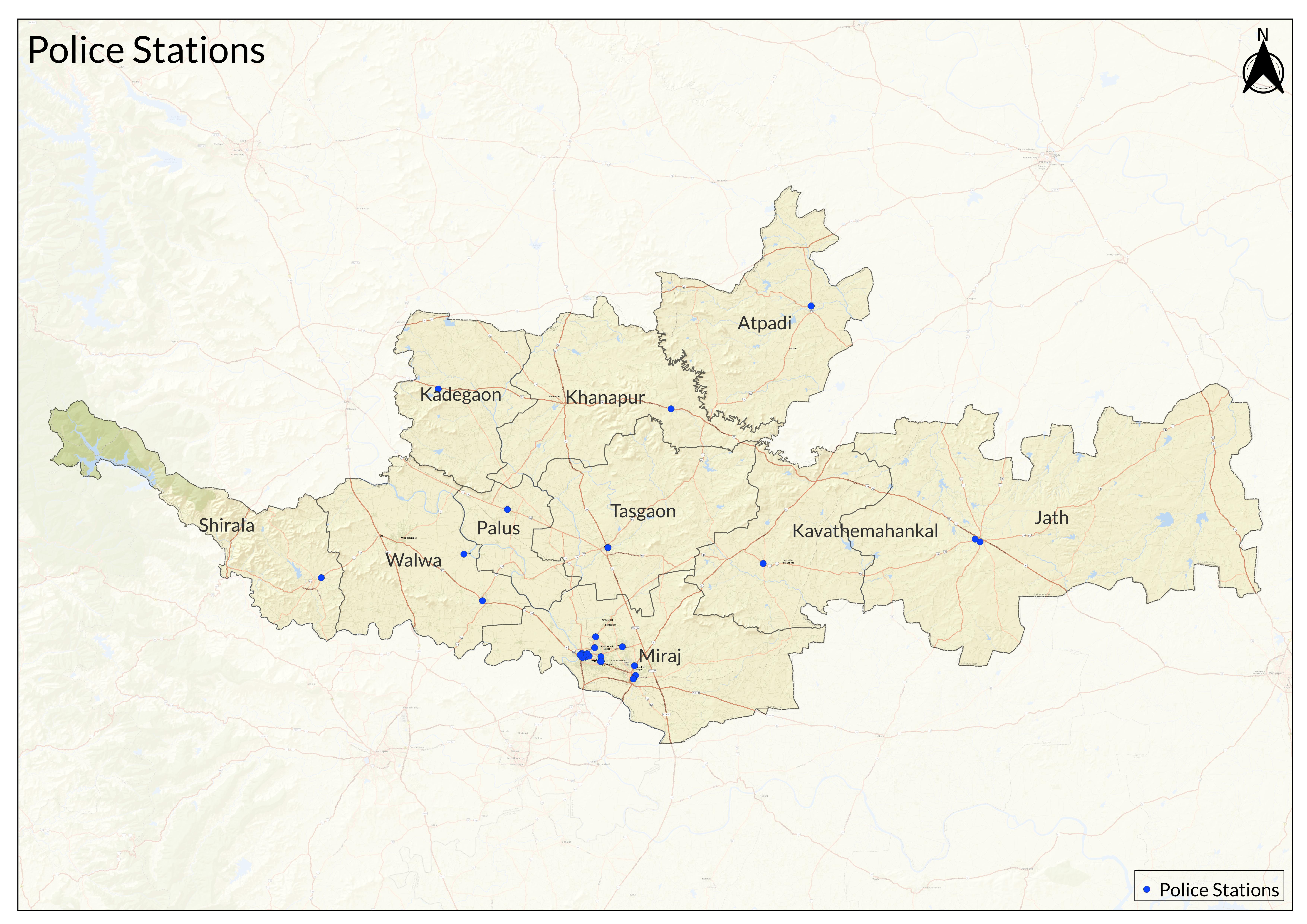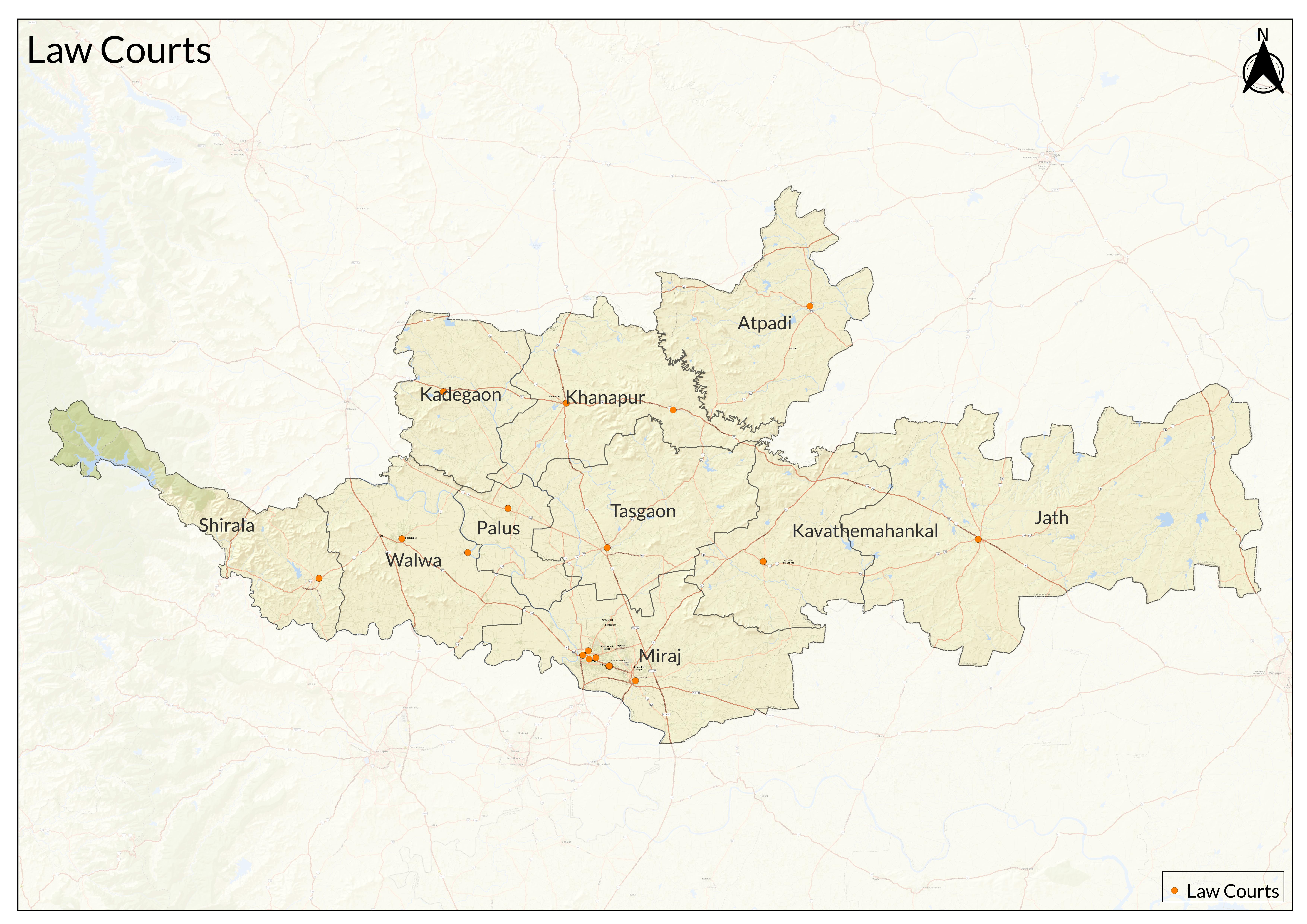Contents
- Jail System
- Graphs
- Criminal Cases
- A. Cognizable Crimes under the Indian Penal Code (IPC)
- B. Select Offenses affecting the Human Body
- C. Select Offenses against Property
- D. Select Offenses against Public Tranquility
- E. Select Offenses relating to Documents and Property Marks
- F. Select Miscellaneous Crimes under the IPC
- G. Cognizable Crimes under Special and Local Laws (SLL)
- H. Select Offenses under Special and Local Laws (SLL)
- I. Crimes against Women
- J. Select Cases of Crimes against Women
- K. Cyber Crime
- L. Select Cases of Cyber Crime
- M. Cases of Fraud
- N. Reported Crimes against Women and Children
- Police Infrastructure and Workforce
- A. Police Infrastructure
- B. Police Officers and Employees
- Judicial System
- A. Number of Functioning Courts
- B. Judge Positions
- C. Cases Resolved
- D. Number of Original Cases Resolved
- E. Number of Appeal Cases Resolved
- Sources
SANGLI
Police & Judiciary
Last updated on 5 November 2025. Help us improve the information on this page by clicking on suggest edits or writing to us.
Sangli district has a well-structured network of police stations strategically positioned across major towns, talukas, and key areas, including Sangli city, Miraj, Tasgaon, Jat, and Islampur. The district police play a crucial role in maintaining law and order, ensuring public safety, and managing traffic, especially in commercial and densely populated zones.

Jail System
Sangli Jail, also referred to as Ganesh Fort, is historically significant, particularly during India's independence movement. It became a notable site for various events, most famously the escape of revolutionaries on July 24, 1943.
On that day, a group of revolutionaries, including Hindurao Patil and Vasantrao Patil, executed a daring escape. They cleverly utilised their time outside for defecation to hatch their plan. Vasantrao Patil managed to seize a guard's weapon, which allowed the group to overpower the jail guards and flee. Their escape led to a dramatic chase involving 125 police officers and army vehicles. Unfortunately, some revolutionaries were shot during the attempt, while others were recaptured shortly thereafter.
Another significant aspect of Sangli's penal history is Swatantrapur, established in 1939 by Raja Bhawanrao Shriniwasrao Pant Pratinidhi. This unique custodial colony permitted well-behaved prisoners to live with their families and engage in farming activities, emphasising rehabilitation over punishment.
Today, Sangli Jail operates as a District Prison Class-II within Maharashtra’s prison system, primarily housing habitual offenders serving sentences longer than three months.
The history of Sangli Jail has also inspired cultural representations, most notably the Hindi film Do Aankhen Barah Haath. This film draws from the experiences at Swatantrapur and emphasises themes of reform and redemption within the penal system.
![Sangli Jail[1]](/media/statistic/images/maharashtra/sangli/police-judiciary/sangli-jail1-b3abe94b.png)
Graphs
Criminal Cases
Police Infrastructure and Workforce
Judicial System

Sources
Pawbake, Vijay Balasaheb. May 15, 2024 - May 15, 2026. Escape of Revolutionaries from Sangli Jail. Sangli, Maharashtra.https://moc.php-staging.com/digital-district…
Wikipedia. Swatantrapur. https://en.wikipedia.org/wiki/Swatantrapur
Last updated on 5 November 2025. Help us improve the information on this page by clicking on suggest edits or writing to us.